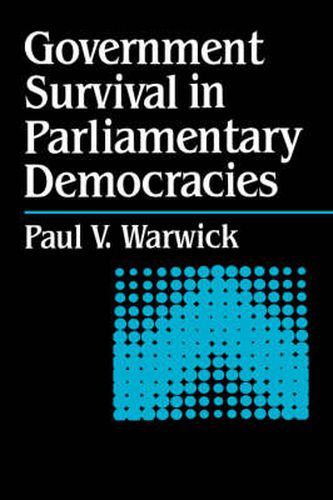Readings Newsletter
Become a Readings Member to make your shopping experience even easier.
Sign in or sign up for free!
You’re not far away from qualifying for FREE standard shipping within Australia
You’ve qualified for FREE standard shipping within Australia
The cart is loading…






This book describes the results of a quantitative investigation into one of the central questions of political science: what determines how long governments survive in parliamentary democracies? Government survival is important because it constitutes an essential component of the overall functioning of parliamentary democracies; it is also closely associated with the introduction to the discipline of event history analysis, a highly promising statistical methodology. The investigation utilises this methodology on what is undoubtedly the most comprehensive data set yet assembled on governments, comprising hundreds of variables measured for governments in sixteen West European parliamentary democracies over the entire postwar period to 1989. The results fundamentally challenge the central thread of current theorising on government survival and point to an alternative conceptualisation of the relationship among governments, parties, and voters.
$9.00 standard shipping within Australia
FREE standard shipping within Australia for orders over $100.00
Express & International shipping calculated at checkout
This book describes the results of a quantitative investigation into one of the central questions of political science: what determines how long governments survive in parliamentary democracies? Government survival is important because it constitutes an essential component of the overall functioning of parliamentary democracies; it is also closely associated with the introduction to the discipline of event history analysis, a highly promising statistical methodology. The investigation utilises this methodology on what is undoubtedly the most comprehensive data set yet assembled on governments, comprising hundreds of variables measured for governments in sixteen West European parliamentary democracies over the entire postwar period to 1989. The results fundamentally challenge the central thread of current theorising on government survival and point to an alternative conceptualisation of the relationship among governments, parties, and voters.